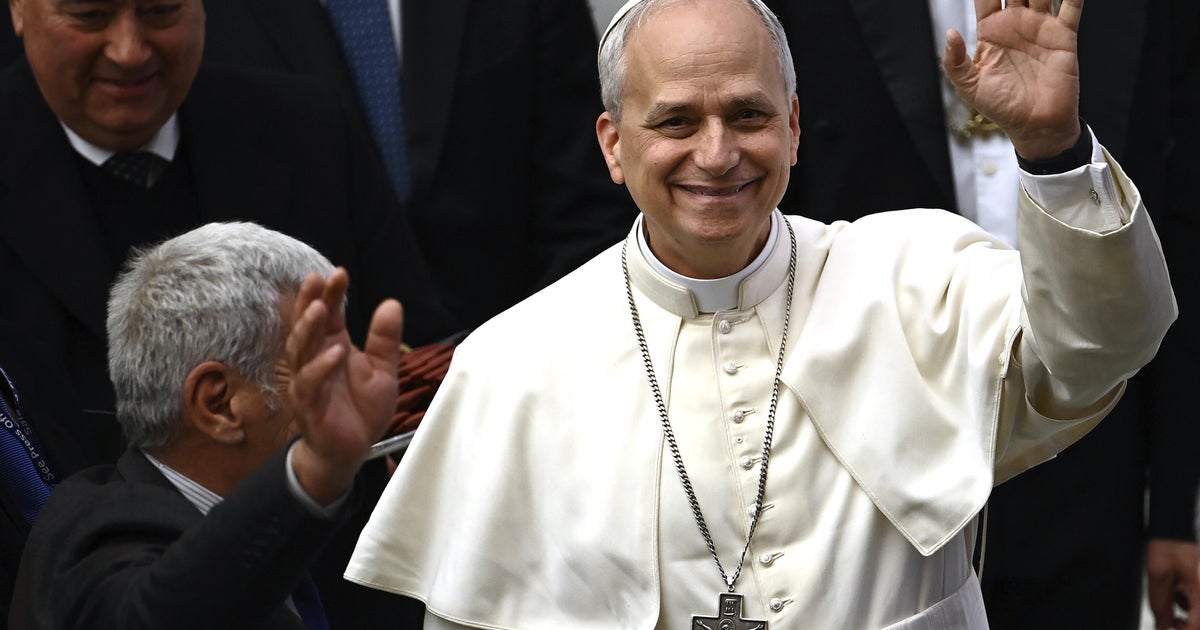St. Sabina pastor Fr. Michael Pfleger reflects on 50 years as a priest
It was 50 years ago Wednesday when Fr. Michael Pfleger, the longtime pastor of St. Sabina Church on the South Side of Chicago, was ordained as a Catholic priest.
Pfleger is a Chicago local household name and a South Side community staple, both as a spiritual leader and an activist.
To this day, you might find Pfleger playing a spiritual hymn on the piano in the St. Sabina sanctuary. He passed on the piano for the collar — inspired by a passion for civil rights, and the Rev. Dr. Martin Luther King Jr.
"I was just drawn to him," Pfleger said. "He became my hero in life."
In 1966, Pfleger was 16 years old, living in what was then a predominantly white Auburn Gresham neighborhood. Dr. Martin Luther King Jr. was leading a march for fair housing in the notoriously segregated Marquette Park.
Earlier this week, he recalled how Dr. King's visit to Marquette Park in the summer of 1966 inspired his own fight for social justice. It was defining moment in his life.
"I talked to one of my friends and said, let's go," Pfleger said.
When he got to the march, he saw a side of some of his friends he has never forgotten.
"What I saw was all this racial stuff, this screaming, throwing of bottles and cans," he said. "It was just, I never saw hatred like this in my life, but what was worse to me is I saw people there that I knew; parents of some of my classmates. I saw people that lived in my neighborhood, some people who went to the church I went to, and I'd never seen this side of them."
Pfleger said when he finally reached where King was marching, he didn't realize that King had already been hit by a thrown rock.
"To see his not being moved by all this hate, and this name-calling, and throwing stuff; and never responding to that, but just keeps saying, 'We're brothers and sisters. We have to learn to live together.' And I left that day, consciously remember to this day, riding home on my bike thinking, 'Either this man is crazy, or he has some kind of power I want to know about,'" Pfleger said.
Pfleger was inspired to become a social activist.
In 1975, he was ordained as a priest after graduating from the University of St. Mary of the Lake.
Pfleger was then sent to St. Sabina, at 1210 W. 78th Pl., as an assistant. But when the presiding pastor died in 1981, Pfleger took over — literally. A protest to rid the community of liquor billboards launched decades of defiance.
Pfleger also sought to stop the sales of drug paraphernalia, and to shut down Chuck's Gun Shop in south suburban Riverdale.
Pfleger has seen some success with his campaigns. The liquor billboards are gone. In 1982, the State of Illinois passed the Drug Paraphernalia Control Act. And finally in March 2025, Chuck's Gun Shop closed.
But children are still dying, so the annual summer marches that Pfleger leads will resume.
"They'll start this year June 13, and go every Friday till October 1," Pfleger said.
While Pfleger's activism has endeared him to the Black community, he has faced backlash from some whites.
"I've been called the n-word," Pfleger said. "I've been called n- lover."
Pfleger's immediate family were the only ones who always stood by him.
There were other painful moments. Pfleger has been suspended four times — once in 2008, for calling presidential candidate Hillary Clinton "entitled" as she faced off against Barack Obama in the presidential primary.
Pfleger was suspended again in 2012 for publicly criticizing Francis Cardinal George's attempt to reassign him to Leo High School.
"I have no background in education," Pfleger said.
He was suspended twice more in 2021 and 2022, over back-to-back allegations from three men accusing him of sexual abuse when he was a young priest. Pfleger was eventually exonerated, but he said the time he was accused was his darkest.
At one point he even thought about taking his life.
"Where I was staying was on the 34th floor. I'll tell you how serious it got. I wrote a letter — a suicide letter — why I was doing it, and how much I loved the people here, and thanked all those who stood with me," Pfleger said. "But I just, I didn't think I could handle it anymore."
Pfleger continued: "The loneliness I felt, even though I had people that loved me, and I thought, 'Let me just end it all.' And I really plotted out how I was going to do it. I was going to jump off that balcony, and I was going to do it in the middle of the night — because I didn't want anybody to have to see it and be traumatized by it."
A visit from Pfleger's nephew interrupted his plan.
"And I told him a couple of days later, 'You probably saved my life,'" Pfleger said.
So Pfleger continues to fight. He recently led a protest against President Trump outside St. Sabina.
But when Pfleger was asked to rally the troops outside the neighborhood, he tells a story.
"I remember a white lady called me about a month ago," he said.
Pfleger said the woman explained that she had voted for President Trump, but needed his help to lead a protest downtown.
I said: 'Ma'am, I can't do that,'" Pfleger said. "I said, 'First of all, you helped put him there, and the white community now is going to have to get together — and white women in particular who put him in — and, say, 'This was a mistake, and we want him out.'"
As to his musical abilities, Pfleger taught himself. It came in handy when he needed money in graduate school.
"I played at a piano bar at night from 9 at night to 4 in the morning, and they were all drunks. They didn't know I couldn't play," Pfleger said, "and I drove a cab for Yellow Cab.'"
Now, Pfleger plays piano to relax.
"I come in here sometimes at night," he said. "You know, it's how I work through my stuff. It's my therapy."
Will Pfleger retire?
"Someday, I hope, before I die," he said. "I don't want to die at the altar."
For the record, Pfleger has no plans to leave the altar.
"Thank God I have good health and I have energy. I go to bed at midnight. I'm up at 5:30 every morning. I work seven days a week. I don't take any days off," Pfleger said. "I love what I do. I love the people here. I love this community."
The typical retirement age for priests is 70. Pfleger turns 76 on May 22.
He said the Archdiocese of Chicago already said he can stay at St. Sabina as long as he wants.
If you or someone you know is struggling with thoughts of suicide, or hurting yourself, there is help available. You can call or text 988 to reach the nationwide Suicide Prevention Hotline.



